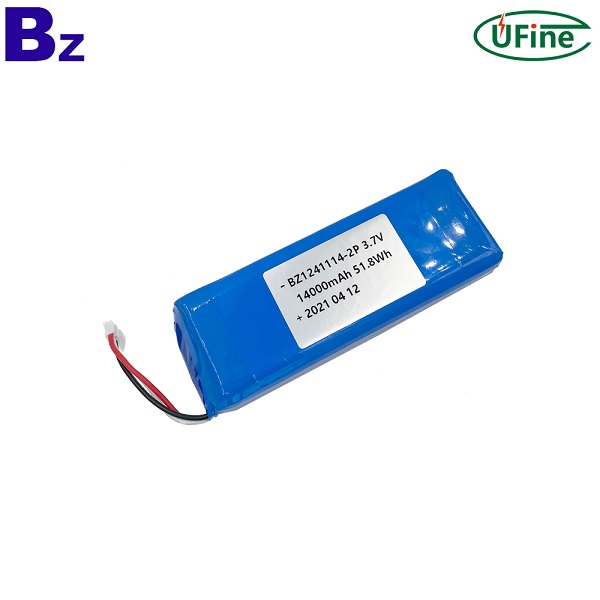1. Lithium-ion battery type and capacity selection
First, calculate the continuous current to be provided by the battery according to the power of your motor (the actual power is required, and the general riding speed will correspond to the corresponding actual power). For example, if the continuous current of the motor is 20A (1000w at 48V), the battery must be able to provide 20A for a long time and the temperature rise is very low (even if the outdoor temperature in summer is 35°C, the battery temperature is best controlled below 50°C). In addition, if the current is 20A at 48V, the overvoltage is doubled (96V, such as ecpu3), and the current continues to about 50A. If you like to use overvoltage for a long time, please choose a battery that can continuously provide 50A current (also pay attention to the temperature rise). The continuous current of the battery here is not the nominal battery discharge capacity of the merchant. The merchant claims that a few C (or a few hundred amperes) is the discharge capacity of the battery, but when the battery is discharged at this current, the battery heats up very seriously. If the heat cannot be dissipated normally, the battery life will be shortened. (Moreover, the battery environment of our electric vehicles is that the batteries are stacked and discharged, basically leaving no gaps, and the packaging is also very tight, not to mention how to do forced air cooling to dissipate heat). Our use environment is very harsh. The battery discharge current needs to be derated for use. Evaluating the battery discharge current capability is to look at the corresponding temperature rise of the battery at this current.
The only principle discussed here is actually the temperature rise of the battery during use (high temperature is the deadly enemy of lithium battery life). It is best to keep the battery temperature below 50°C. (Preferably between 20-30°C). This also means that if it is a capacity lithium battery (discharge below 0.5C), the continuous discharge current of 20A must be above 40Ah (of course, the most important thing is the internal resistance of the battery). If it is a power-type lithium battery, it is normal to continue to discharge according to 1C. Even for A123 ultra-low internal resistance power lithium batteries, 1C discharge is usually best (no more than 2C is better, 2C discharge can only take half an hour, which is not very useful). The choice of capacity depends on factors such as the size of the car's storage space, personal expenditure budget, and the expected range of car activities. (Small capacity generally must be a power type lithium battery)
2. Screening and assembly of batteries
Serious unbalanced battery self-discharge is a taboo for using lithium-ion batteries in series. As long as everyone is the same, imbalance is fine. The problem is that this state is extremely unstable. Good battery self-discharge is small, bad battery self-discharge is large. The self-discharge is not small, and the state generally changes from good to bad. The state of this process is unstable. Therefore, batteries with high self-discharge should be screened out, and only batteries with small self-discharge should be kept (generally, the self-discharge of qualified products is small, and the manufacturer has tested it. The problem is that many unqualified products flow into the market).
On the basis of small self-discharge, select series with similar capacity. Even if the capacity is different, it will not affect the battery life, but it will affect the usable capacity of the entire battery pack. For example, the capacity of 15 batteries is 20Ah, and only one battery is 18Ah, so the total capacity of this group of batteries can only be 18ah. At the end of use, the battery is exhausted and the protection board is protected. The voltage of the whole battery is still relatively high (because the voltage of the other 15 batteries is normal and there is still electricity). Therefore, the discharge protection voltage of the entire battery pack can determine whether the capacity of the entire battery pack is the same (provided that the entire battery pack is fully charged). In short, the capacity imbalance will not affect the battery life, but will only affect the capacity of the entire group, so try to choose components with similar capacities.
The assembled battery must achieve good ohmic contact resistance between the electrodes. That is, the smaller the contact resistance between the wire and the electrode, the better, otherwise the electrode with high contact resistance will heat up, and this heat will be transferred to the inside of the battery along the electrode, affecting the battery life. Of course, the performance of high assembly resistance is the large voltage drop of the battery pack under the same discharge current (part of the voltage drop is the internal resistance of the cell, and the other part is the assembly contact resistance and line resistance).



